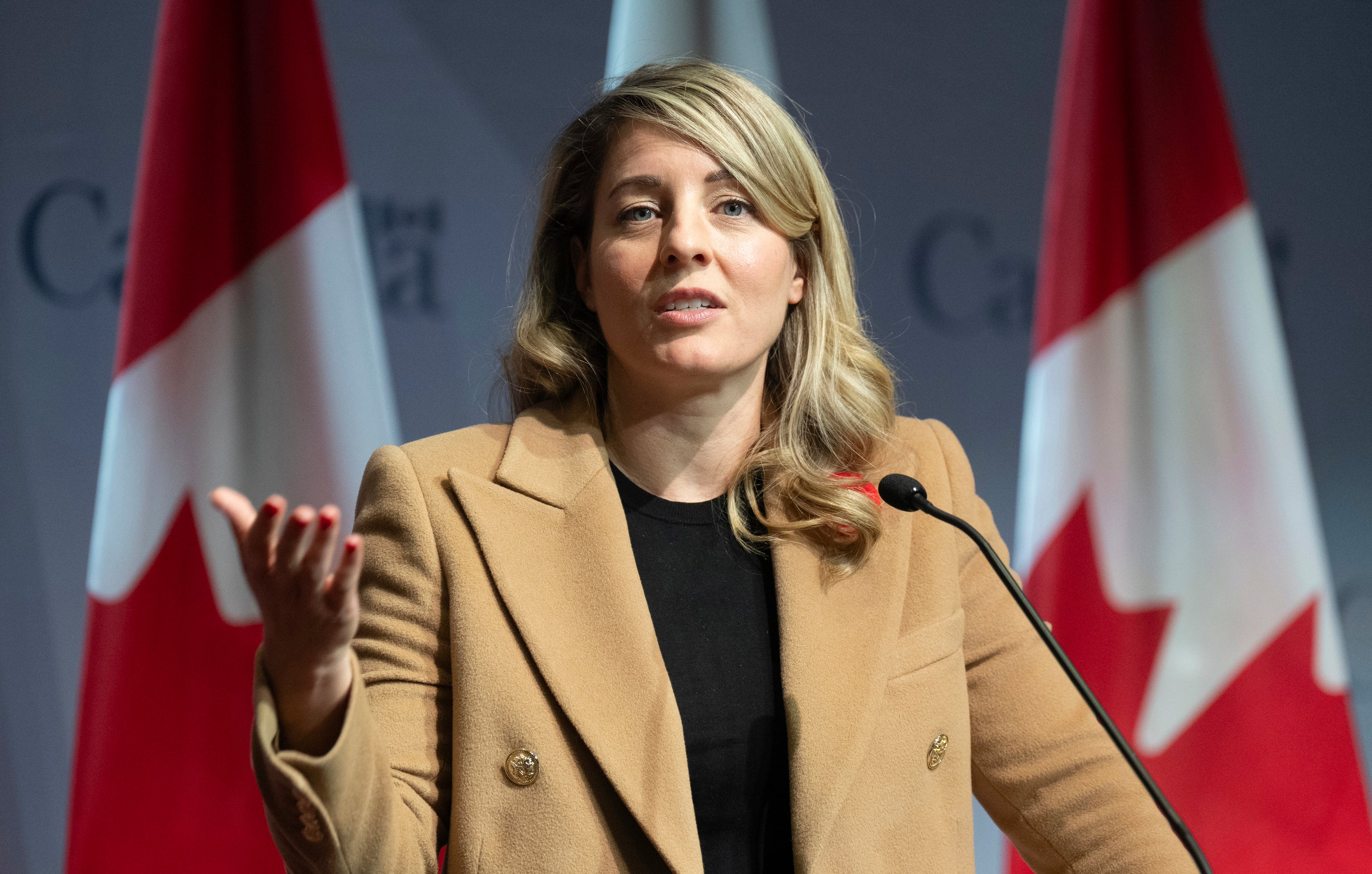Canadian cabinet ministers meet Trump team amid threat of tariffs and jibes about ‘51st state’
Finance minister Dominic LeBlanc and foreign minister Mélanie Joly made the trip to Mar-a-Lago as the incoming president continues to make ominous noises about relations between their two countries

Your support helps us to tell the story
From reproductive rights to climate change to Big Tech, The Independent is on the ground when the story is developing. Whether it's investigating the financials of Elon Musk's pro-Trump PAC or producing our latest documentary, 'The A Word', which shines a light on the American women fighting for reproductive rights, we know how important it is to parse out the facts from the messaging.
At such a critical moment in US history, we need reporters on the ground. Your donation allows us to keep sending journalists to speak to both sides of the story.
The Independent is trusted by Americans across the entire political spectrum. And unlike many other quality news outlets, we choose not to lock Americans out of our reporting and analysis with paywalls. We believe quality journalism should be available to everyone, paid for by those who can afford it.
Your support makes all the difference.Two Canadian Cabinet ministers met with President-elect Donald Trump's nominee for commerce secretary at Mar-a-Lago on Friday as Canada tries to avoid sweeping tariffs when Trump takes office.
Finance Minister Dominic LeBlanc and Foreign Minister Mélanie Joly met with Howard Lutnick, Trump’s nominee for commerce secretary, as well as North Dakota Governor Doug Burgum, Trump’s pick to lead the Interior Department.
Trump has threatened to impose 25% tariffs on all Canadian products if Canada does not stem what he calls a flow of migrants and fentanyl into the United States — even though far fewer of each cross into the U.S. from Canada than from Mexico, which Trump has also threatened.
“Minister LeBlanc and Minister Joly had a positive, productive meeting at Mar-a-Lago with Howard Lutnick and Doug Burgum, as a follow-up to the dinner between the Prime Minister and President Trump last month,” said Jean-Sébastien Comeau, a spokesman for LeBlanc.
Comeau said both ministers outlined the measures in Canada's billion-dollar plan to increase security at the border and reiterated “the shared commitment to strengthen border security as well as combat the harm caused by fentanyl to save Canadian and American lives.”
Comeau said Lutnick and Burgum agreed to relay the information to Trump.
The Trump transition team did not immediately respond to a message seeking comment.
Further discussions are expected in the coming weeks. Joly will also have dinner with U.S. Senator Lindsey Graham on Friday.
Trump has been trolling Prime Minister Justin Trudeau on social media in recent weeks by calling him the Governor of the 51st state.
Flows of migrants and seizures of drugs are vastly different at the U.S.’s two land borders. U.S. customs agents seized 43 pounds of fentanyl at the Canadian border during the last fiscal year, compared with 21,100 pounds at the Mexican border.
Most of the fentanyl reaching the U.S. — where it causes about 70,000 overdose deaths annually — is made by Mexican drug cartels using precursor chemicals smuggled from Asia.
On immigration, the U.S. Border Patrol reported 1.53 million encounters with migrants at the southwest border with Mexico between October 2023 and September 2024. That compares to 23,721 encounters at the Canadian border during that time.
Trump has also made an issue of the U.S. trade deficit with Canada, erroneously calling it a subsidy.
Canada’s ambassador to Washington, Kirsten Hillman, has said the U.S. had a $75 billion trade deficit with Canada last year. But she noted a third of what Canada sells into the U.S. are energy exports and said there is a deficit when oil prices are high.
About 60% of U.S. crude oil imports and 85% of U.S. electricity imports are from Canada. Alberta alone sends 4.3 million barrel s of oil per day to the U.S which tends to consume about 20 million barrels a day.
Nearly $3.6 billion Canadian dollars ($2.7 billion) worth of goods and services cross the border each day. Canada is the top export destination for 36 U.S. states.
Trudeau has told Trump that Americans would also suffer if the president-elect follows through on a plan to impose sweeping tariffs on Canadian products.